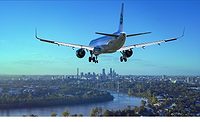Countries will have more power to crack down on unruly behavior onboard aircraft, once the Montreal Protocol 2014 (MP14) goes into effect on January 1, 2020.
MP14, or the Protocol to Amend the Convention on Offences and Certain Other Acts Committed on Board Aircraft, is a global treaty that strengthens the powers of states to prosecute unruly passengers.
It closes a legal gap under the Tokyo Convention 1963, whereby jurisdiction over offenses committed on board international flights rests with the state where the aircraft is registered. This causes issues when unruly passengers are delivered to the authorities upon landing in foreign territories, according to the International Air Transport Association (IATA).
Unruly and disruptive passenger incidents on board flights include physical assault, harassment, smoking or failing to follow crew instructions, IATA says. Incidents may compromise flight safety, cause significant delays and operational disruption, and adversely impact the travel experience and work environment for passengers and crew.
“Everybody on board is entitled to enjoy a journey free from abusive or other unacceptable behavior . But the deterrent to unruly behavior is weak. About 60 per cent of offenses go unpunished because of jurisdictional issues,” said Alexandre de Juniac, IATA’s director general and CEO. “MP14 strengthens the deterrent to unruly behavior by enabling prosecution in the state where the aircraft lands. The treaty is in force. But the job is not done. We encourage more states to ratify MP14 so that unruly passengers can be prosecuted according to uniform global guidelines.”
To date, 22 nations have ratified MP14.
In addition to strengthening jurisdiction and enforcement, airlines are working on measures to help prevent incidents and manage them more effectively when they do happen, according to IATA. These include enhanced crew training and raising awareness with passengers of the potential consequences of unruly behavior on board.



